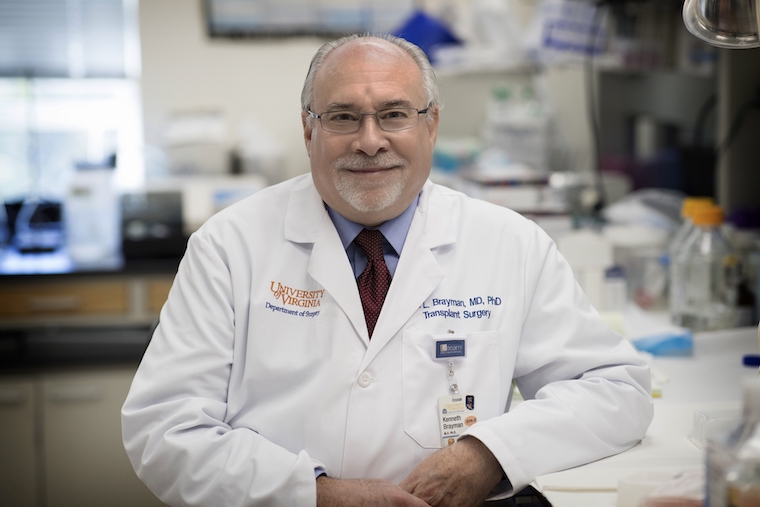Our Kenneth Brayman, MD, and his colleagues are hot on the trail of what they believe could be a way to prevent type 1 diabetes.
The solution, they think, could be a concentrated form of a naturally occuring antibody called human immunoglobulin, or IgM.
“With many immunosuppressive agents, if you give them at the right time, you can prevent the disease,” Dr. Brayman, a transplant surgeon, told me. “But when you stop the drug, the disease recurs. But it’s different with IgM. IgM is reprogramming the immune system.”
The researchers believe concentrated IgM could also benefit people who already have diabetes by facilitating the transplantation of clumps of pancreatic cells called islets. The islets include the cells that make insulin.
“To successfully transplant cells into humans with type 1 diabetes, you have to prevent rejection, and you have to prevent recurrence of autoimmunity,” Dr. Brayman explained. “If the IgM can lower or eliminate the amount of conventional immunosuppression that needs to be used, it would be very helpful, because there are people who would love to have islet transplant but they don’t want to be on long-term immunosuppression.
“So it would change the risk-benefit paradigm for them,” he said. “And then, for other autoimmune diseases, currently the only way to control many of these is with conventional immunosuppression. So if you can give IgM and then the patient is tolerized to their own antigens that are acting as stimulants for the autoimmune process, then hopefully you can make the disease quiescent and prevent a lot of long-term complications.”
Right now, Dr. Brayman and his colleagues are looking for a partner in the pharmaceutical industry that can make concentrated IgM. Once they have that, they will seek the necessary federal approvals to begin human testing — they hope within the next couple of years.
